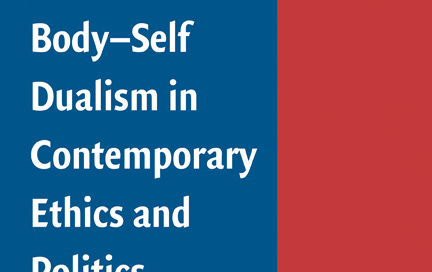In past writing, I’ve critiqued a popular argument against the permissibility of gay sex (here, here, and here): the so-called perverted faculty argument.
But there’s a moral argument against homosexuality I haven’t considered yet, one that’s has been advanced by a range of prominent legal theorists and philosophers, among them John Finnis, Robert P. George, Melissa Moschella, and Patrick Lee.
It’s called the dis-integration argument. Excitingly, the dis-integration argument doesn’t share any premises with the perverted faculty argument, which is a sizeable point in its favour, since the perverted faculty argument is on crack.
The most common response to the dis-integration argument is to show that it implies silly things. (For the best response along these lines, see this obscure 2013 article by David Boonin, where he argues that if the dis-integration argument is sound, then it’s immoral to close your eyes to sooth a headache or jump on a grenade to save your fellow soldiers.)
But reductio arguments still leave us wondering where, exactly, the argument went off the rails. And to my knowledge, no one has ever systematically gone through the dis-integration argument and diagnosed what’s wrong with the premises.
Today — drum roll, please — I am going to do just that.
Now that you’re all excited (embarrassing), here is how the argument goes:
Premise 1: If you choose to engage in a merely instrumental sexual act, then you treat your body merely as a means to an end.
Premise 2: If you treat your body merely as a means to an end, then you view your body as something other than you.
Premise 3: Viewing your body as something other than you is dis-integrating.
Premise 4: If a use of the body is dis-integrating, then it undermines a basic human good.
Premise 5: If an act undermines a basic human good, then it is morally wrong.
Premise 6: Therefore, choosing to engage in a merely instrumental sex act is morally wrong.1
The idea behind premise (1) is that if — say — you have gay sex purely for the sake of pleasure (or relationship building, or becoming a manlier Roman), you thereby use your body merely as a means to your end. So far, morality hasn’t entered the picture.
The idea behind premise (2) is that when you treat your body merely as a means to an end, you can’t help but view your body — if only for a moment — as something that isn’t you. The thought, I take it, is that as a psychological matter, when you use your body in a purely instrumental way, you can’t coherent view yourself as both the subject and the object of what you’re doing. As Patrick Lee and Robert P. George put the claim, “in such a choice one treats the body as a mere extrinsic means: one regards the body as something outside or apart from the subject, and so as a mere object.”2
The idea behind premise (3), I take it, is that we are our bodies (as opposed to being, say, brains, souls, or streams of psychological continuity.) Our bodies aren’t mere parts of us; we are them. But then, the thought goes, when you view your body as something other than you, you dis-integrate yourself psychologically, just as it would be psychologically disintegrating (and delusion-inducing) if you viewed yourself-on-Mondays as a different person from yourself-on-Tuesdays.
The idea behind premise (4), I take it, is that psychological integrity is a basic human good — something worth pursuing in itself — and that when you view yourself in a psychologically dis-integrating way, you undermine that basic good.
Premise (5) is pretty self-explanatory: if something undermines a basic human good, then it is morally wrong. (Note: I think by wrong, they mean categorically wrong — i.e., wrong even if it would avert WW3. But I don’t think that claim is essential to the argument, so I won’t treat it as thought it is.)
Therefore, the argument concludes, choosing to engage in a merely instrumental sex act is morally wrong.
Now you’ve seen the argument, here is what’s wrong with the premises.
Keep reading with a 7-day free trial
Subscribe to Going Awol to keep reading this post and get 7 days of free access to the full post archives.




